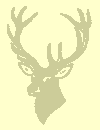Anna Moï, L'écho des rizières (The echo of the paddy fields):
“
“Mistakes are seldom fatal.
They're even rather happy, reflecting thus a subjective view which does not match other people's reality.
During the time necessary to correct it, they give to things an out of step identity: a freshness.”
Is the fact that an out of step identity is given to things a mistake?
And if there is an error, isn't it the fact of believing that an error is possible?
And if there is no mistake, there is thus nothing to correct.
A proverb says: “Errare humanum est, sed perseverare diabolicum / to err is human; to persist (in error) is diabolic.”
What is diabolic belongs to the Devil, in other words to the one who divides.
Error (mistake) has the same root as errare (wander, roam). Isn't wandering the rightest way to walk on one's own path, the path which is a “subjective view which does not match other people's reality”?
Which leads me back to the first post of this blog...
Is it diabolic to want to make one's own way?
Would it be only one and the same way for all beings, and not as many ways as beings?
For my part, I don't attach such a dramatic status to mistake. Mistake, it is the unforeseen, the unexpected, it may be a present that life offers to me in order to escape the narrowness of my own view by reminding me that the possibles never stop being created.
.
Lama Chagdud (or Chakdud) Tulku Rinpoche (epigraph of L'écho des rizières which translation I have found at emdots' home):
“
“Always recognize the dreamlike qualities of life and reduce attachment and aversion.
Practice good-heartedness toward all beings.
Be loving and compassionate, no matter what others do to you.
What they will do will not matter so much when you see it as a dream.
The trick is to have positive intention during the dream.
This is the essential point.
This is true spirituality.”
If there is no other mistake than believing that mistake is possible, in the dream that life may be, then correcting that only mistake, taking off that veil which distorts vision, isn't it that positive intention which allows to dwell in dream.
And to conclude about that positivity:
Ralph Waldo Emerson (Compensation) (thanks to emdot):
“
“Neither can it be said, on the other hand, that the gain of rectitude must be bought by any loss. There is no penalty to virtue; no penalty to wisdom; they are proper additions of being. In a virtuous action, I properly am; in a virtuous act, I add to the world; I plant into deserts conquered from Chaos and Nothing, and see the darkness receding on the limits of the horizon. There can be no excess to love; none to knowledge; none to beauty, when these attributes are considered in the purest sense. The soul refuses limits, and always affirms an Optimism, never a Pessimism.”



